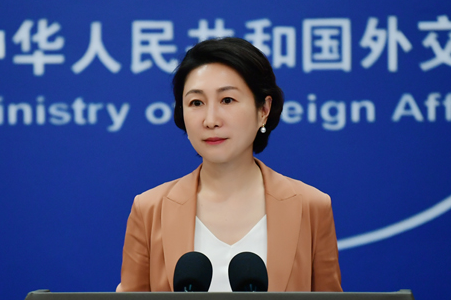Jurists push for African Union reparations framework

African jurists have called on the African Union to establish a parliamentary framework on the continent that will help secure the speedy release of reparations by former colonizers.
"We want compensation, restitution and guarantee of non-repetition that this will never happen again," said Henrietta Ekefre, legal adviser for the Africa Reparations Program at the Africa Judges and Jurists Forum.
"We want the African Union to adopt a framework for reparations so that we will rally behind that with the AU leading that process. We want to have a common position for reparations."
On Thursday and Friday of last week, African judges, lawyers, scholars and members of civil society met in Johannesburg to map a way forward to speed up reparations payments by the former colonizers. Ekefre said they agreed that "practical action oriented" must be taken to ensure that Africans are compensated for "injustices of the past", which include colonialism, apartheid, the slave trade and forced removal from their land.
She pointed out that different countries suffered differently from colonialism and, hence, the claims are different. Zimbabwe is demanding the return of their archival records and artifacts, South Africa is seeking compensation for apartheid, while Germany has reached a deal with the Namibian government over acts of genocide. Other African countries want the remains of their heroes to be returned to their homelands. The African jurists selected a steering committee which will ensure the outcomes of the meeting are released. Ekefre said they will educate young people on various platforms, including digitally, about reparations so that they can influence education and policy on the issue.
"We want countries to have policies on reparations, we want the African governments to do what they are supposed to do and have reparation policies," she added.
"We will approach the Pan African Parliament and parliamentarians, including the AU to push for policies on reparations."
Elijah Masubelele, executive deputy director for Institute for Justice and Reconciliation in South Africa, echoed Ekefre's sentiments that Africans have to be "rehabilitated and compensated". He said Africans were disadvantaged by colonization and they have to be helped to be where they were before colonialism.
He said:" We want reparatory justice to be used as a development tool and not necessarily as compensation.
"The South African government has a draft framework sitting somewhere and we want that finalised and would like to see its implementation. We want those responsible for colonialism and apartheid to be held accountable. Colonialism was a crime against humanity. Where governments fall short, we will help them."
Martin Mavenjina, senior program adviser, Transitional Justice at Kenya Human Rights Commission said they helped Mau Mau guerillas to get compensation from the British in 2013. He said the British apologized for torturing Mau Mau guerillas and paid compensation and built a museum in Nairobi for them.
Mavenjina said the case is significant not only to Kenya but to Africa as whole because it showed that former colonies can get justice for the atrocities of colonialism. He said they continue to advance the rights of different groups who are survivors of colonial atrocities in and outside Kenya. He said they invite politicians to listen to the victims' cases, which has resulted in the reparations legal framework which is now before parliament.
He pointed out that former colonial masters are not willing to discuss the matter of reparations because they are afraid that it would encourage other African countries to demand compensation and that will be costly for them. Some former colonial masters are finding it difficult to apologize fearing that it would be an admission of guilt, said Mavenjina. He said the Mau Mau apology was crafted in such a way that the British are not implicated in human rights violations.
Masubelele said there have been conversations between former colonizers and former colonies to return artifacts and there have been some progress. Germany returned some artifacts to Benin and Nigeria, while France has returned some to Benin, Madagascar and Senegal. The United Kingdom has returned artifacts which were stolen from Ghana.

































